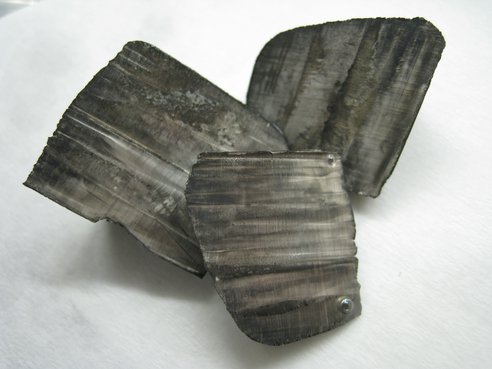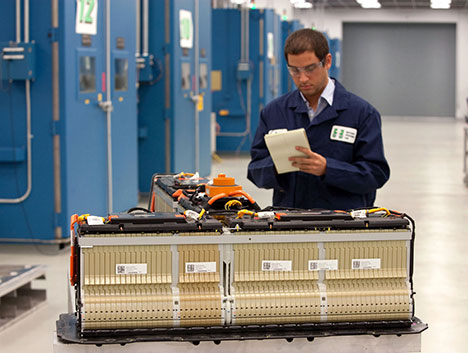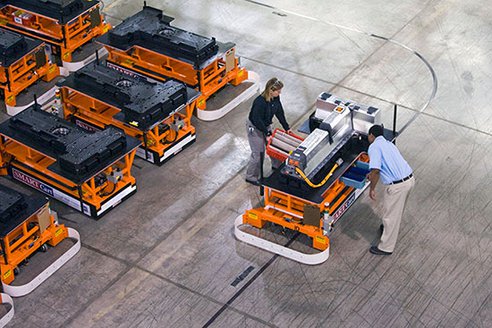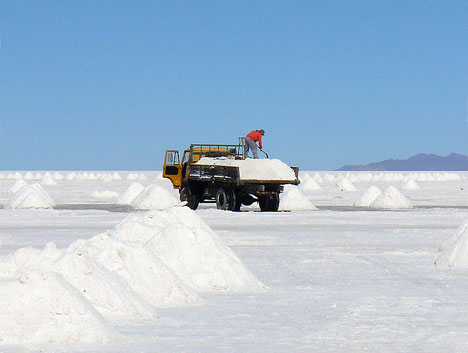
(above) Wikimedia/CC BY 3.0
Massive deposit of lithium found in Wyoming could meet all U.S. demand
April 25, 2013 - Treehugger.com
by Michael Graham Richard
Currently, the U.S. imports more than 80% of the lithium it uses
Despite the fact that Bolivia alone has enough lithium reserves for 4.8 billion electric cars and that lithium can be recycled from old batteries (it doesn't disappear after use like oil), some people are concerned about our civilization's increased dependence on the soft silver-white metal. It's true that the [Li] element is finding its way into everything, from phones to cars. But most signs seem to point toward lithium's availability going up and its price going down over time, not the reverse. This would be great for the electrification of transportation via plug-in hybrids and fully electric cars.
(below) Chevrolet lithium batteries.

Jackpot
The latest development that supports that thesis comes from researchers at the University of Wyoming. They've found lithium - a lot of it - in Rock Springs Uplift, a geological feature in southwest Wyoming. Data so far suggests that brines from a 25-square-mile area could contain 228,000 tons of lithium. That's enough to meet annual U.S. demand, and almost twice as much as the reserves from the biggest domestic lithium producer (located at Silver Peak, in Nevada).
(below) More Chevrolet lithium batteries.

Many factors make the location ideal for lithium production:
- First, production of lithium from brines requires soda ash (sodium carbonate), and importation of soda ash to lithium production facilities often represents a large expense. However, the Rock Springs Uplift CO2 storage site is located within 20 to 30 miles of the world's largest industrial soda ash supplies, so the costs of soda ash delivery (by rail, truck or pipeline) would be minimal.
- Second, magnesium must be removed from brines before they can be used for lithium recovery, which makes the entire lithium recovery process more expensive. Fortunately, the brines from the Rock Springs Uplift reservoirs contain much less magnesium than brines at existing, currently profitable lithium mining operations.
- Third, brines must be heated and pressurized before lithium can be extracted from them. However, because the Rock Springs Uplift brines lie so far underground, they are already at a higher pressure and temperature than brines at existing lithium operations. This would allow operators to essentially eliminate this step in the process, resulting in significant cost savings. (source)
Another potentially interesting source of lithium: Geothermal power plants.
(below) A photo of Bolivia's salt flats where lithium is found in huge quantities.
